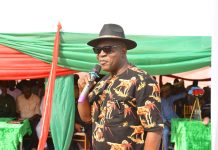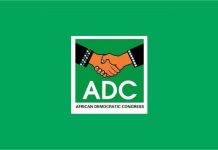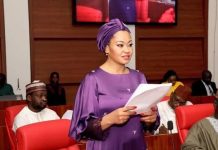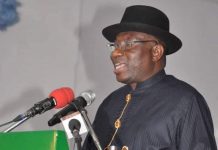By:Eze Onyekpere
Nigerians will be going to the polls on Saturday, March 28, 2015 to elect a new president in accordance with the presidential constitutional tenure of four years. The president is the most important and powerful elected officer in a presidential system of government; he leads the executive arm of government. He presides over the economy, proposes expenditure and after approval by the legislature, oversees implementation through ministers and public servants. He also has a role in the appointment of the highest ranking officials in the judiciary. In our winner takes all approach to governance, any interest group that sponsors a successful presidential candidate more or less controls not just the political but the economic, social and cultural aspects of Nigerian life.
The 2015 presidential election appears to be the most keenly contested in Nigeria’s history particularly since the return to civil rule in 1999. The other four elections in 1999, 2003, 2007 and 2011 had been some sort of coronations, just to fulfil all righteousness to affirm that the candidates of the Peoples Democratic Party won the elections. Apparently, the first election in 1999 seemed to have been pre-arranged by the military godfathers to favour the winning candidate. But today, the storyline is changing. For the first time, no one can say with certainty that an incumbent will be returned. The opposition parties have coalesced and pulled their resources to form the All Progressives Congress which has presence in virtually all states of the federation. The result is a formidable opposition taking on an equally formidable ruling party.
The incumbent President Goodluck Jonathan started the race early with his friends in the Transformation Ambassadors of Nigeria and continued thereafter with a multi-media blitz and rallies across the federation. Quite unlike the 2011 presidential election when Gen. Muhammadu Buhari’s Congress for Progressive Change could not muster the resources to campaign in all states of the federation and mount a reasonable challenge to the incumbent, the APC presidential candidate has now not only organised campaigns and rallies in every state of the federation but has gone a second round after the postponement of the polls to organise town hall meetings, dinners and second time rallies. Although the incumbent seems to have more resources at his disposal to mount huge electronic and print media campaigns, billboards and other reach-out, there is a clear case of a real contest where the candidates are campaigning for votes until the final minute.
The candidates have presented their ideas of governance and made all manner of promises to Nigerians on what they intend to do should they be entrusted with presidential power in the next four years. To the candidates, I say congratulations. It has not been easy in terms of time and resource commitments. The campaigns have pushed you to the limits. You have put up a good fight and you have paid your dues. Now is the time to calm down and recognise that you are engaged in the sporting event called politics. There can only be one winner in this sporting activity. And the fact of winning is not a death sentence on other contestants. Indeed, the candidate announced as the winner is not the actual winner. The winner will be the Nigerian people who will stand in the sun and rain to cast their votes and likely wait until the conclusion of the voting to hear the announcement at the polling booth.
This brings the discourse to the most compelling issues. Having run a good race and a winner announced, a good sportsperson should congratulate the winner; shake hands, embrace and wait for another day. He should offer his ideas at the appropriate time for improvements to governance. The proclaimed winner should not adopt an imperial attitude or mock the loser to provoke or deride him. It makes no sense. He should offer a hand of fellowship and compassion because there would have been no race properly so called, if there was no competitor. All exhortations by the candidates and their close allies seeking to incite violence should have no place once the results are announced. If they were uttered in the campaigns, Nigerians are ready to forgive and forget when they consider the words to have been uttered “in the heat of passion”. It is also not late for anyone who has made such statements to now renounce them and apologise to the Nigerian people so that his or her supporters would know that those exhortations were made in error. Thus, those who asked their supporters to stone people who use certain slogans have an opportunity to retrace their steps.
But it would be another issue that will attract national and international prosecution if anyone should incite violence after the elections. Whether the words are spoken in English or any local language, we have enough Nigerians who can come forward to offer a good interpretation. The killings and loss of properties after the 2011 elections should not be allowed to repeat. Nigerian law is robust enough to ensure that those who instigate murder, maiming, rape and looting are brought to justice and if Nigerian law fails, the jurisdiction of the International Criminal Court will be invoked. For the young ones who will be offered money or just incited to commit atrocities, it is imperative to understand that a plea that you were asked by a top politician to kill will be no defence in law. Yes, it will be no defence in a court of law manned by human beings and considering that we are a deeply religious people, it will also be no defence before the judgment throne of the Almighty God. If a politician instructs you to commit illegalities, simply ask him to go and do it himself or send his children to do the same. There is no duty to obey an illegal instruction.
Any candidate actually dissatisfied with the result of the polls should proceed to the election tribunals which have been established for the purpose of adjudication. Prosecute your case diligently and let the tribunals do justice according to the law. For the judges who will preside at these tribunals, this is not a time to concentrate on technicalities while leaving the substance of the law. Tribunal decisions should seek to confirm the will of the majority expressed through the vote and not any abstract notions of absurd technicalities which has been the case in the work of previous tribunals. For Nigerians who are poor and have been offered money or resources to vote for particular candidate, this discourse has a straight forward message for you. Your poverty is the product of bad governance perpetuated by the very persons who are offering you filthy lucre. Your vote is your power and the only opportunity you may have to rebel against bad governance. So you must vote according to the dictates of your conscience and rebel against tyranny and economic oppression with your vote.
Fellow Nigerians, let the elections come and go; vote and do not be involved in any madness. Let us not be caught up in the frenzy and do things we will later regret. We did that in 1966 -1970 and the scars are still with us. There will still be a country called Nigeria after March 2015
Follow me on tweeter @censoj








